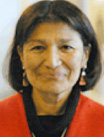
Dr. Aída Walqui
Director, Teacher Professional Development Program
WestEd
Dr. Aída Walqui directs the Quality Teaching for English Learners (QTEL) project. As director of QTEL, Walqui brings a career long focus on increasing the academic success of English Language Learners. She leads the development and implementation of the QTEL approach to professional development and the articulation of QTEL principles in the development of QTEL curricula.
Previously, Walqui taught in the Division of Education at Stanford University, where she coordinated the Cross-Cultural, Linguistic, and Academic Development emphasis in the STEP program.
View Dr. Aida Walqui's website.
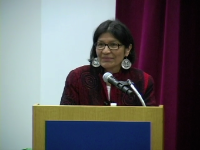 |
1. Setting the Stage:Three Major Points
"It really is an honor to be with you today because all of you are very concerned with education. When we look at education, it is obvious that there is a lot of work for you to do." |
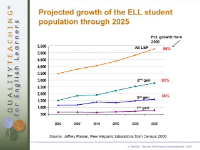 |
2. Demographic Imperative: ELL Population Trends
"If we look at the population of English Language Learners in the United States, and you look at the projected growth for 2025, you can see the growth at 58%." |
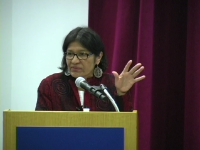 |
3. English Language Development in a Changing Economy
"What I would like to share with you now is something that focuses more squarely on English Language Learners and the progress that students make over a year, when compared by CELDT data." |
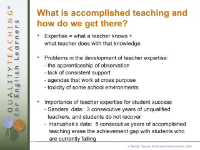 |
4. Accomplished Teaching: Expertise, Problems, and Importance
"What do we know about accomplished teaching, teaching that really brings out the talents of the students? We know that accomplished teaching is defined as a teacher having expertise." |
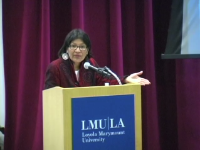 |
5. Problems in Developing Teacher Expertise
"What are some of the problems with developing teacher expertise? The first one is what Dan Lortie defines in The Apprenticeship of Observations (1975) as being acquainted with the task of teaching." |
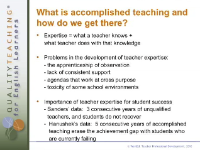 |
6. Data on Teacher Expertise: Sander's Data; Hanushek's Data
"In spite of this, we know that teachers are absolutely the most crucial element in a student’s life. We have, for example, devastating data from Sanders." |
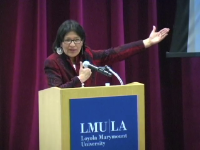 |
7. Pedagogy of Promise: Socio-Cultural Views of Learning
"The pedagogy of promise is one where the look for students is a look forward towards the future…the teacher doesn’t worry about their past…although teacher understands where they are… and the teacher traces very ambitious goals." |
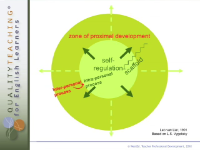 |
8. The Zone of Proximal Development: Revisiting Vygotsky
"Self-regulation goes back to the notion where it was born, in the 1930’s with the work that I am sure you hear in your classes, Lev Vygotsky. He spoke about autonomy." |
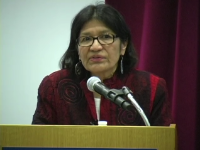 |
9. Rigor, Expectations, and Interactions: Joint Construction Through Language
"What underscores this work? Work that really looks forward is characterized by academic rigor. And rigor can manifest itself in multiple different instantiations." |
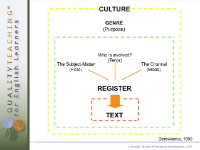 |
10. Genre: Text With a Purpose
"I wanted to show a whole new way of looking at this theme. And that is looking at the notion of genre as a piece of text that fulfills a specific purpose." |